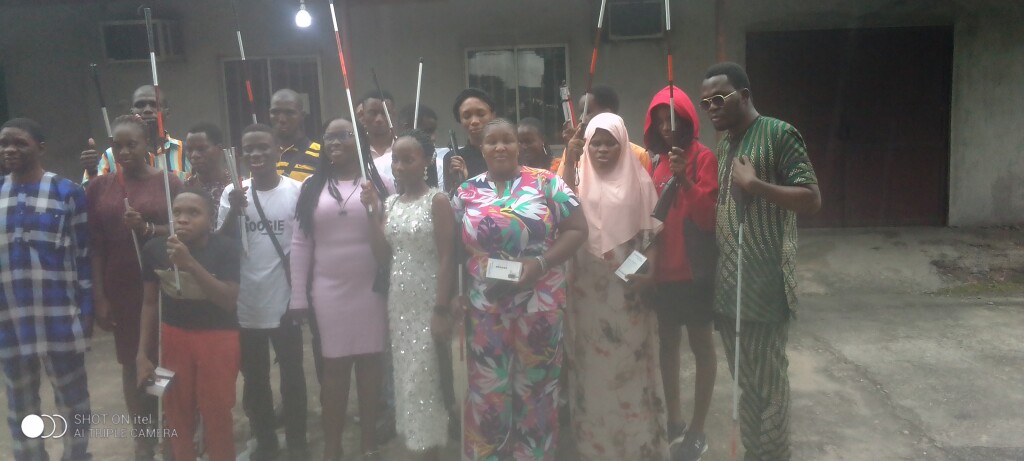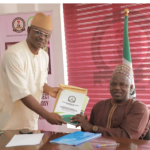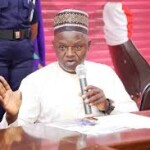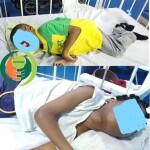Nigeria may have churned out a number of policies addressing gender equality in society, but the problem is not about to go away. Still less in the community where disability complicates issues.
The manner of participation in a three-month leadership training Eagle Voice recently organized for the University of Lagos blind community underscored this. It equally confirmed the widening leadership gender gap in the nation’s disability community, the NGO founder Kemi Odusanya said.
According to trainer Daniel Olamide, it took some efforts to enroll the female participants the donor-funded project Break the Bias originally targeted. Many of them, in their testimonials, actually confirmed their inertia when the training began.
“It was after we’d started that word spread, and many of the female participants started enrolling,” Odusanya said while addressing newsmen and some NAB executives (Lagos chapter) at Jibowu July 19.
The former NAB secretary (national) blamed ignorance for this, and noted that it worsens the problem in a patriarchal society like Nigeria.
Olamide also pointed how revealing it is—that students in the southwest displayed such ignorance in appreciating leadership training. He left to the imagination the situation in regions where culture and religion pile the odds against the girl child, not to talk of one with disabilities.
The organizers agreed society isn’t quite responsible for the student’s ignorance. Nigeria has gender-equality provisions in various affirmative-action policies and legal frameworks for the generality of women. Kemi, however, expressed her reservation against some of the policies that focus on disabilities.
“Like the Discrimination Act 2018: it’s doesn’t expressly mention the female gender,” she told ER. And the reflection of that cannot be missed in the disability community. “In my national association, for instance, we have just one woman—in the women leadership role. Can’t a blind woman be NAB’s president?”
NAB’s chairman Lukman Salami highlighted this in his brief address. But the lawyer told the participants nothing prevents women in the cluster from bidding for the chairmanship in the coming election.
To bridge the gender gap in her immediate constituency, Odusanya said there’s need to keep up this advocacy to eradicate ignorance.
“If my parents were not knowledgeable enough to send me for rehabilitation when I lost my sight 15 years ago, I might still be at home now,” she said.
Apart from leadership, other aspects the NGO addressed during the free training include computer, mobility, and communication skills.
Speaking about her experience, Glory, among the participants, said she’s the outspoken type, naturally. But she appreciated the opportunity to learn about an ‘elevator speech’.
“And my friends couldn’t believe I use the computer well enough now to format my works,” she said.
She and other 15 successful participants also received empowerment items, including a voice recorder and a white cane each.
Salami did the item presentation.







